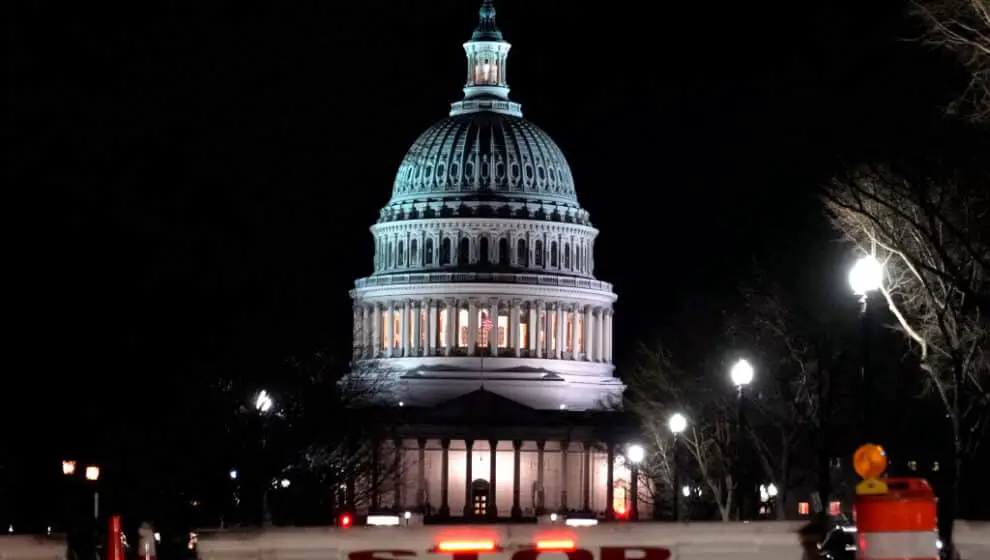The U.S. Senate will likely approve the $1.7-trillion omnibus spending bill after an agreement on an immigration-related amendment was made.
Key Details
- The Title 42 amendment that will be voted on separately from the overall bill allows illegal immigrants to be returned home if captured crossing the U.S. border. Democrats oppose the amendment and tried to stop a vote from taking place.
- The 4,000-page spending bill includes a long list of expenditures, such as $45 billion in aid to Ukraine, $330 million to build processing facilities at the southern border, and $858 billion in defense spending.
- The bill provides the necessary funding to keep operating the government, which otherwise would have shut down after December 23.
why it’s important
Senate Democrats had been trying to cut off debate about the Title 42 amendment—the pandemic-era public-health measure allowing migrants to be sent back to Mexico after crossing the U.S. border illegally—and vote on the 2023 government funding bill. The bill keeps the government funded beyond December 23.
“Lawmakers said the holdup in negotiations had centered on Republican efforts to get an amendment vote on Title 42,” The Wall Street Journal reports. “The policy was set to end this week but has been kept in place temporarily by the Supreme Court.”
The bill contains many mutual compromises and benefits for both parties in the hope that it can be pushed through without debate or contention, as it will need at least 10 Republican votes to pass the Senate.
It’s one of the largest spending bills in recent history, and no real discussion was given to paying for it, through cuts elsewhere or through an increase in taxes.
backing up a bit
Congressional leaders filed the 4,155-page, $1.7-trillion bill Tuesday morning.
The bill boosts defense by $858 billion, bolsters police spending, provides $45 billion in Ukrainian aid and NATO funds, $41 billion in disaster relief, and increases funding to the CHIPS Act with an additional $1.8 billion.
It also bans the TikTok app on government devices, boosts inflation relief, and adjusts the electoral college procedure, preventing a Vice President from throwing out votes.
The next session begins on January 3, 2023. Until then, if the bill does not pass, the government would face another shutdown, furloughing non-essential government employees, halting federal small business loans, and halting some government services.
“The Title 42 policy, first rolled out by the Trump administration as COVID-19 was starting to spread, is believed to have acted as a deterrent for some migrants seeking asylum because they could be turned back even if they asked for protection in the U.S.,” says The Journal.

